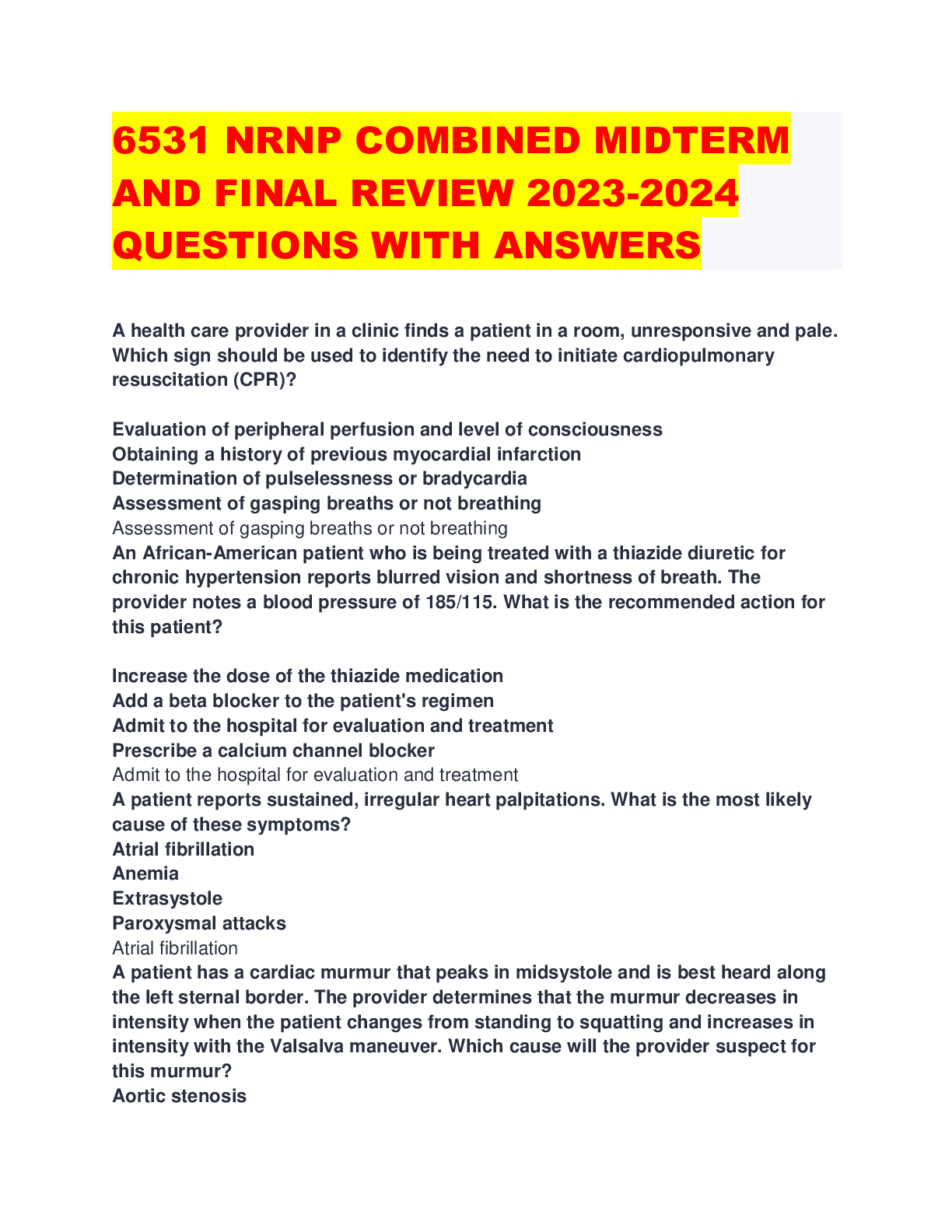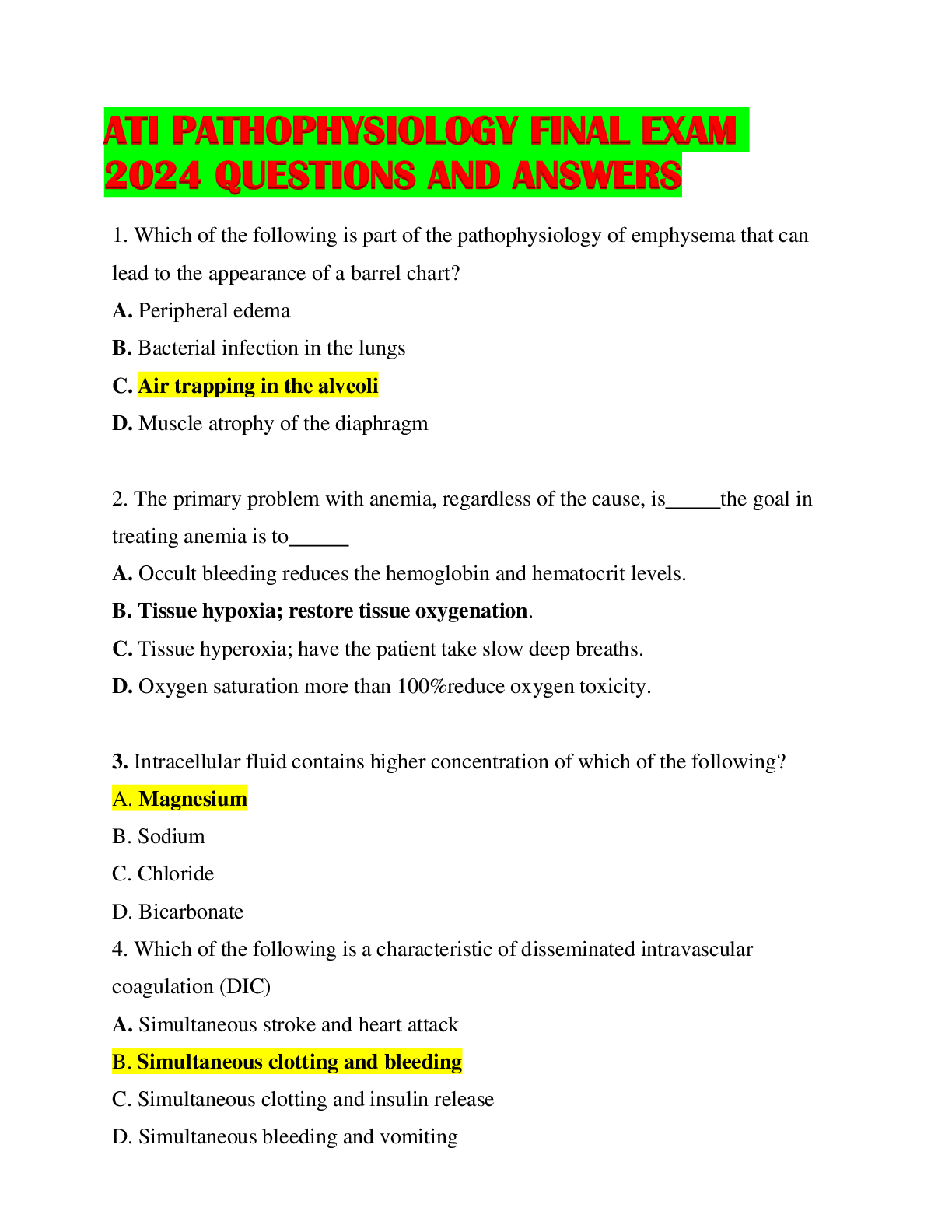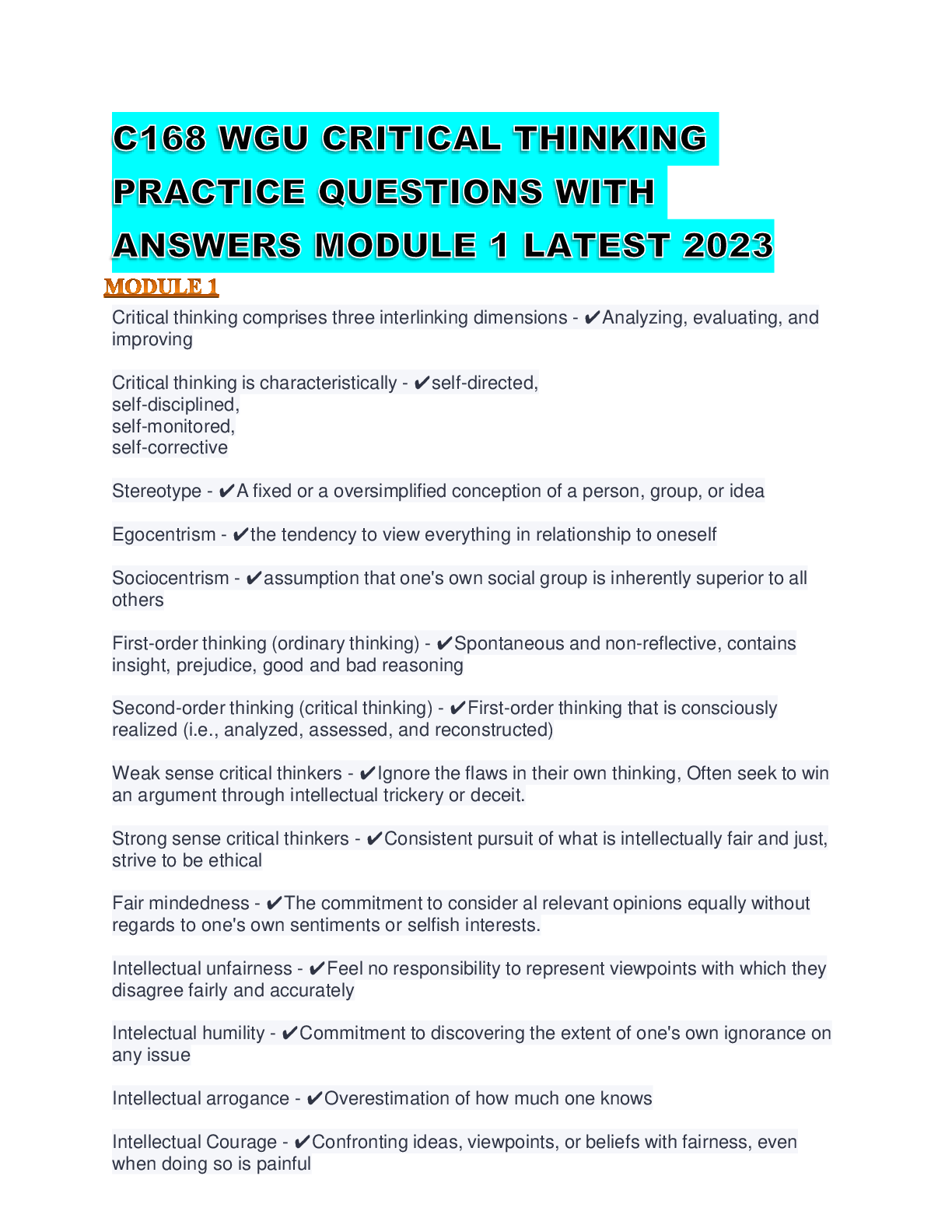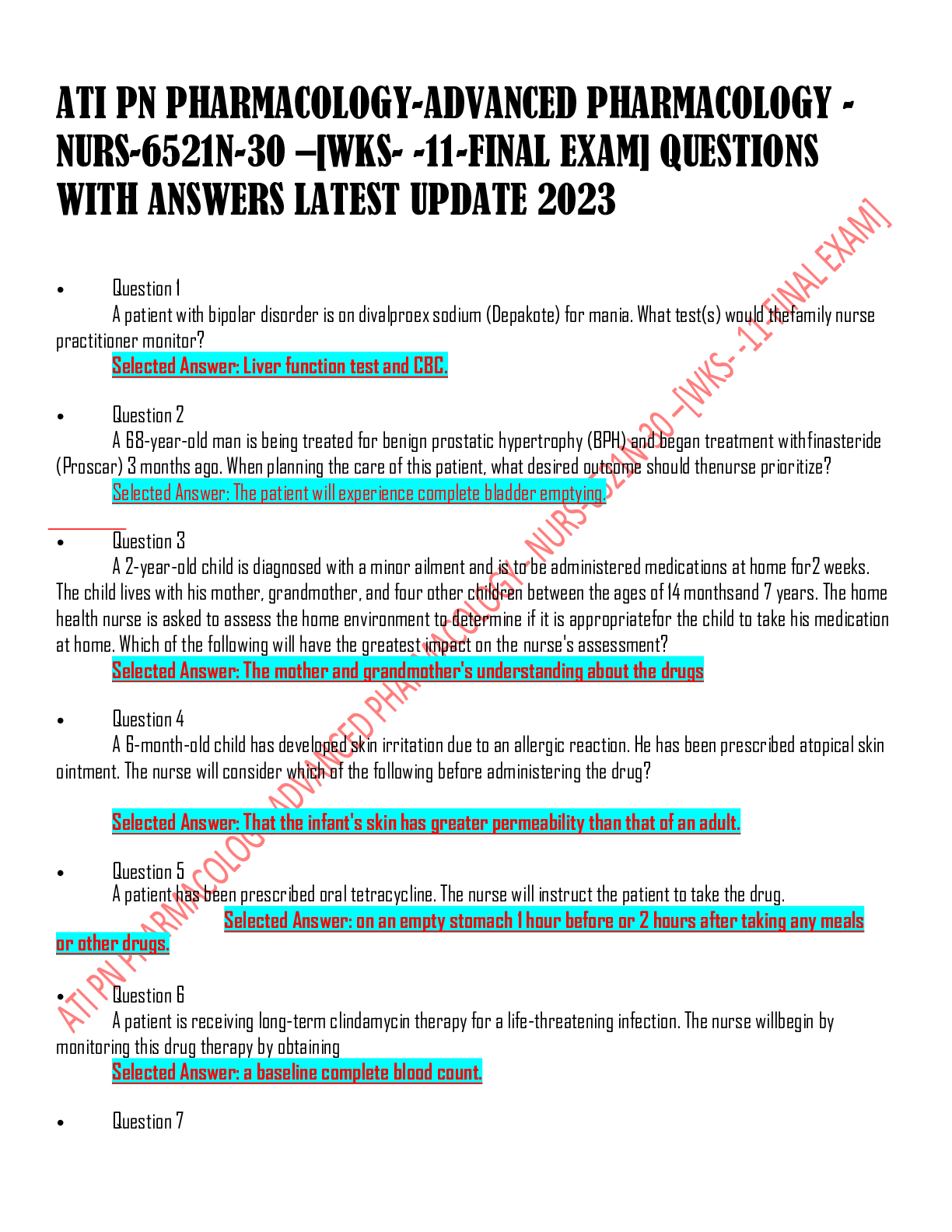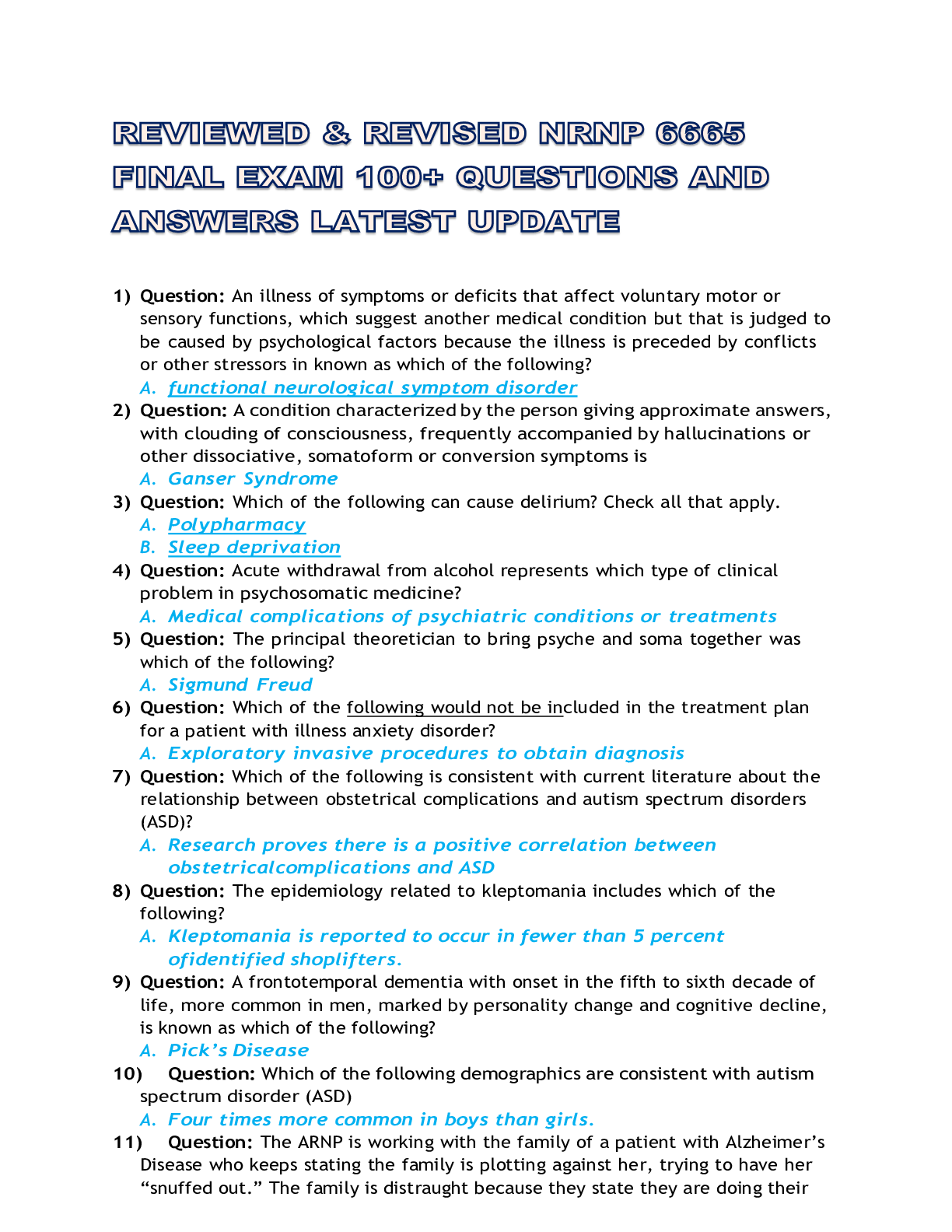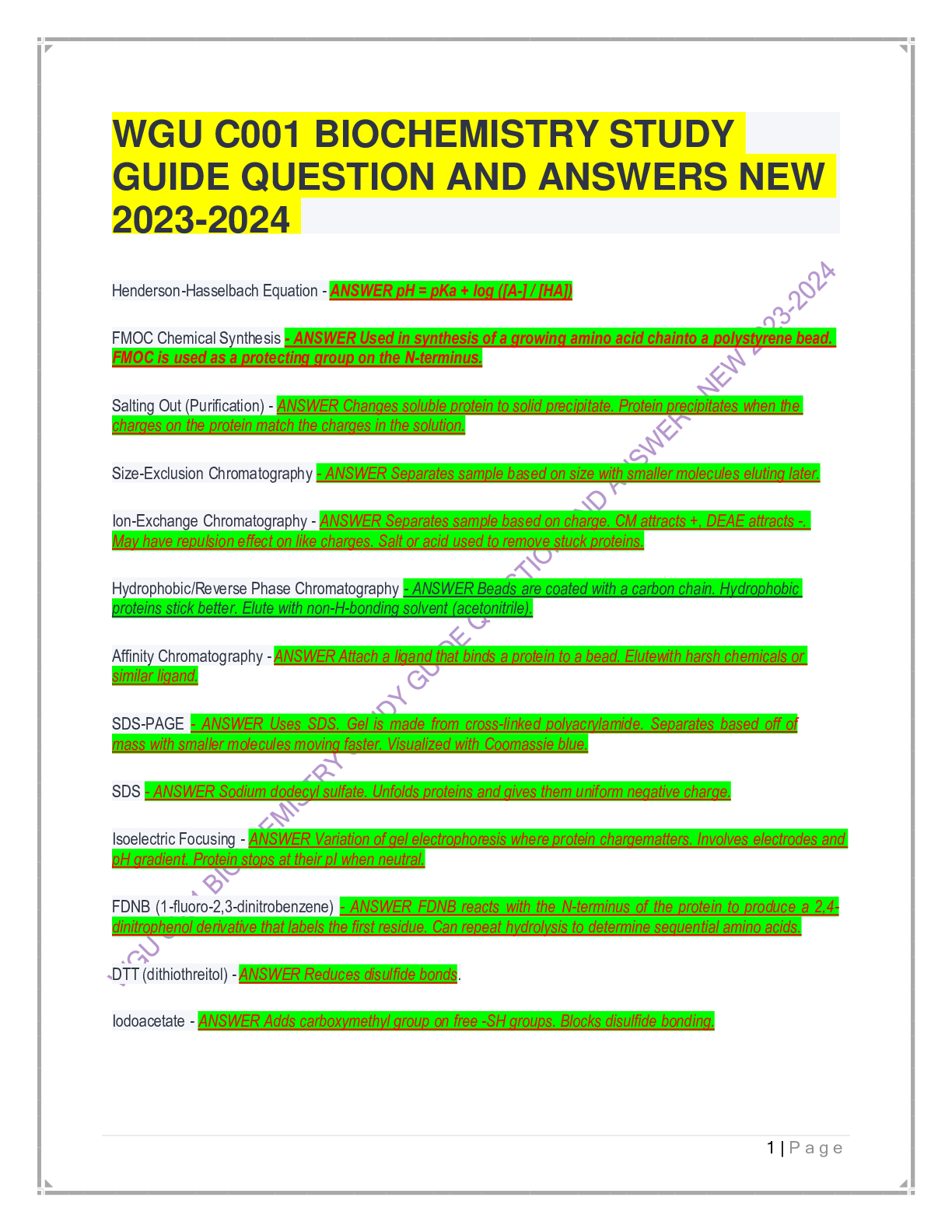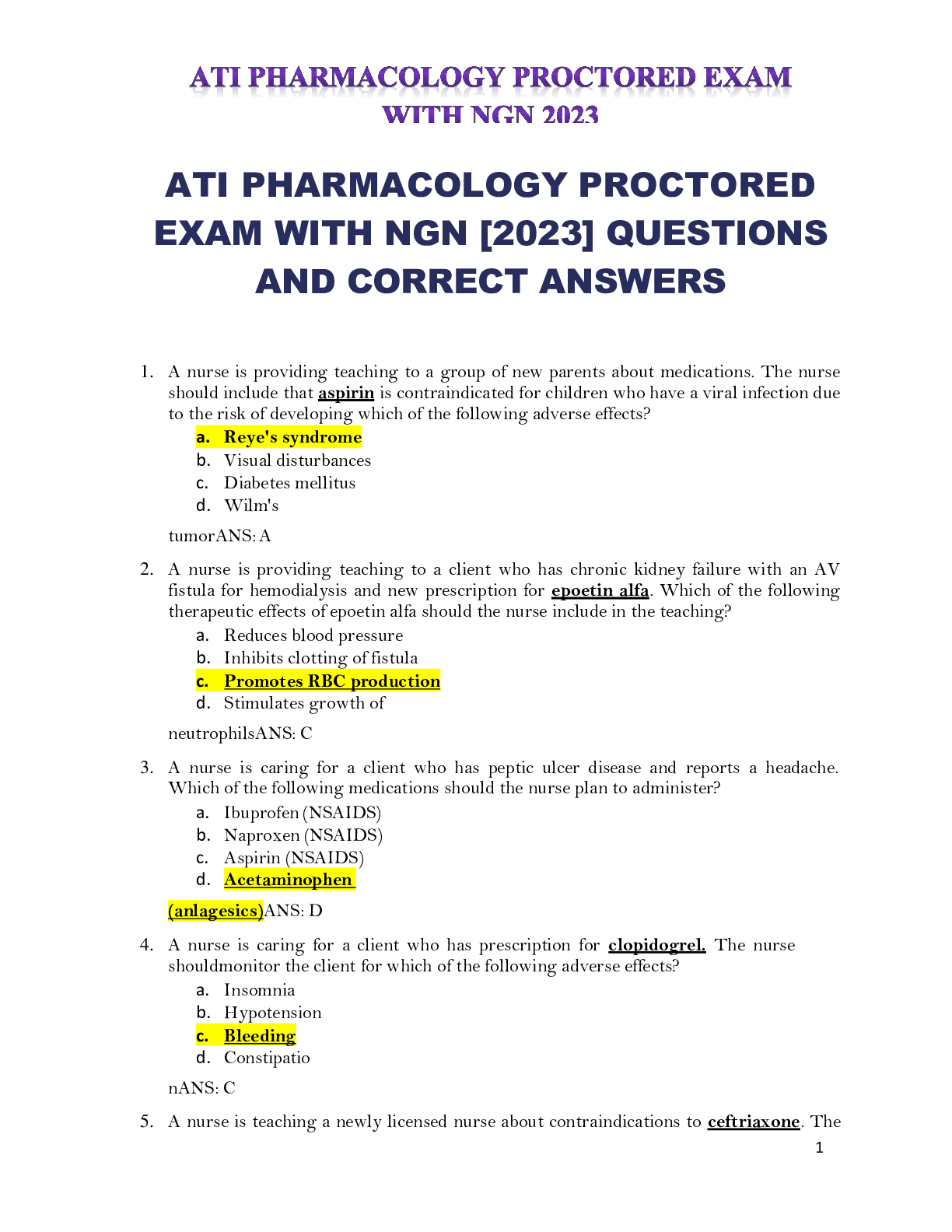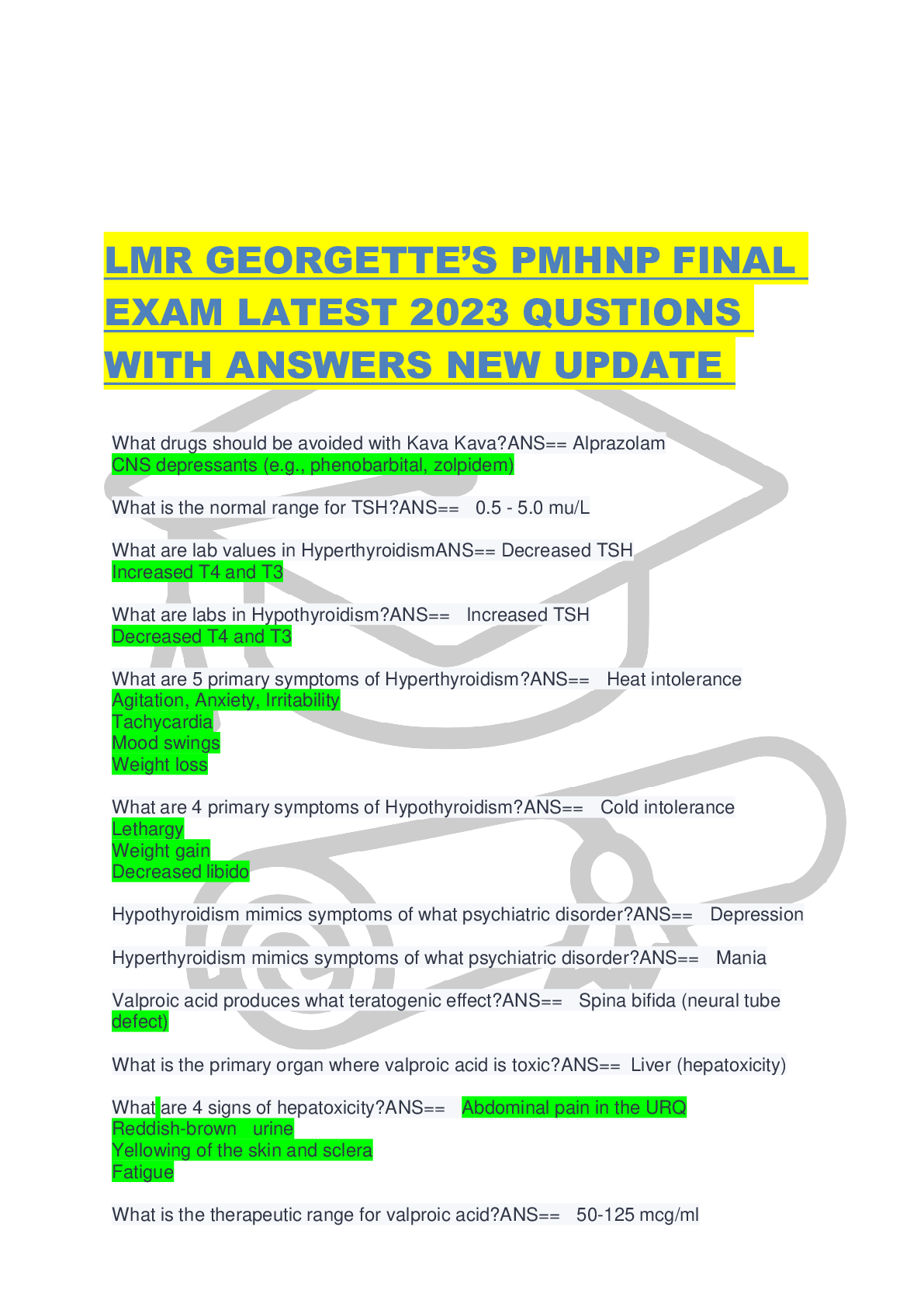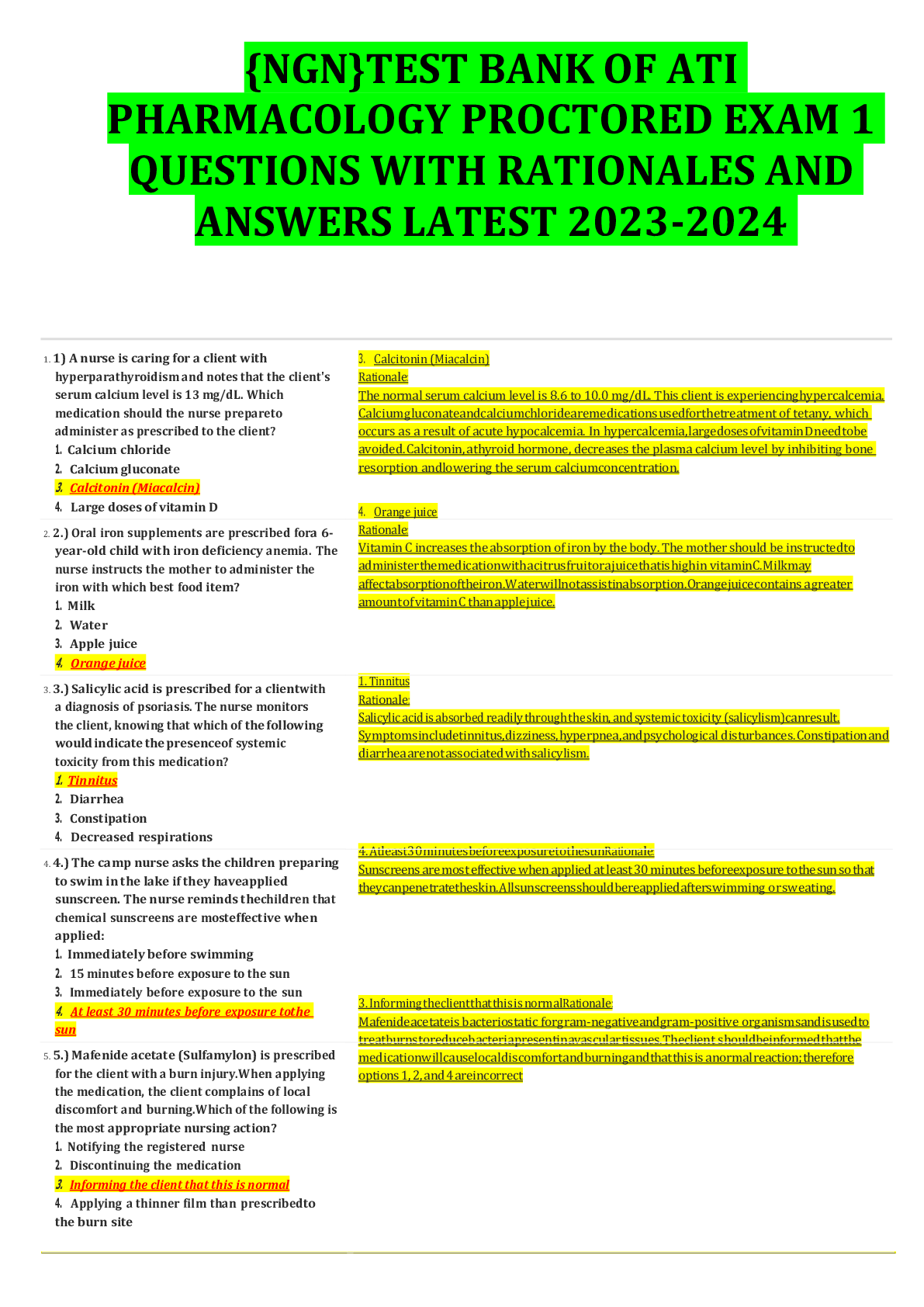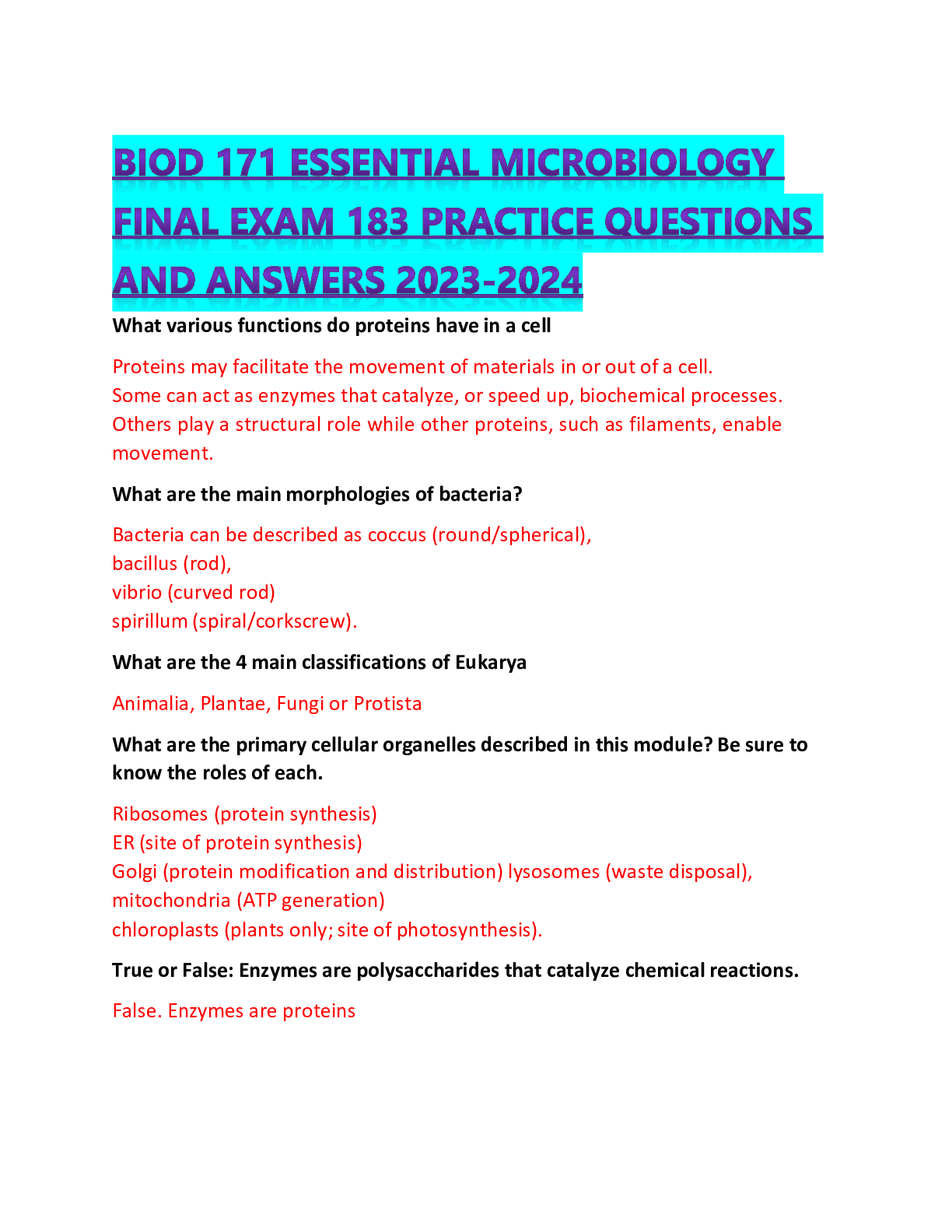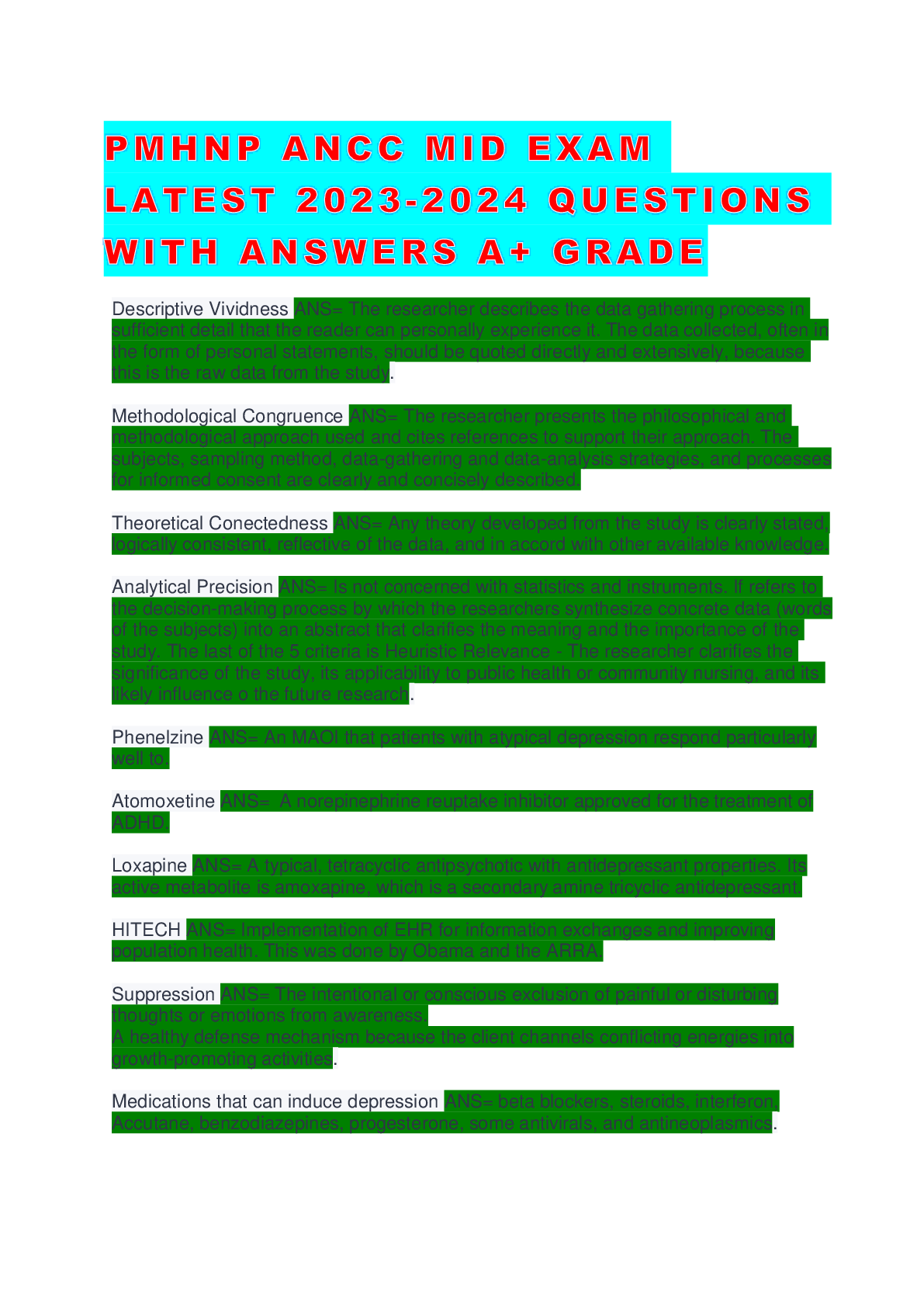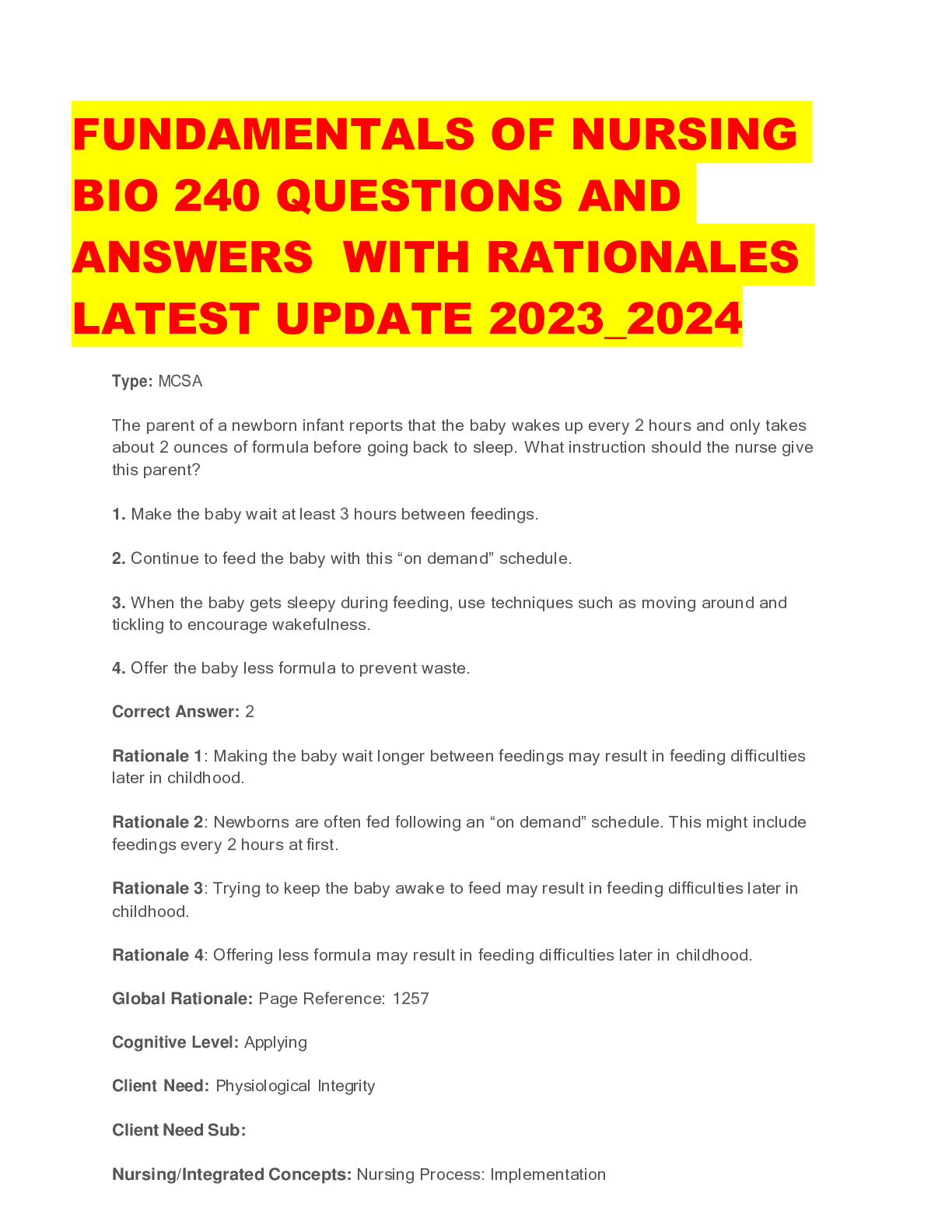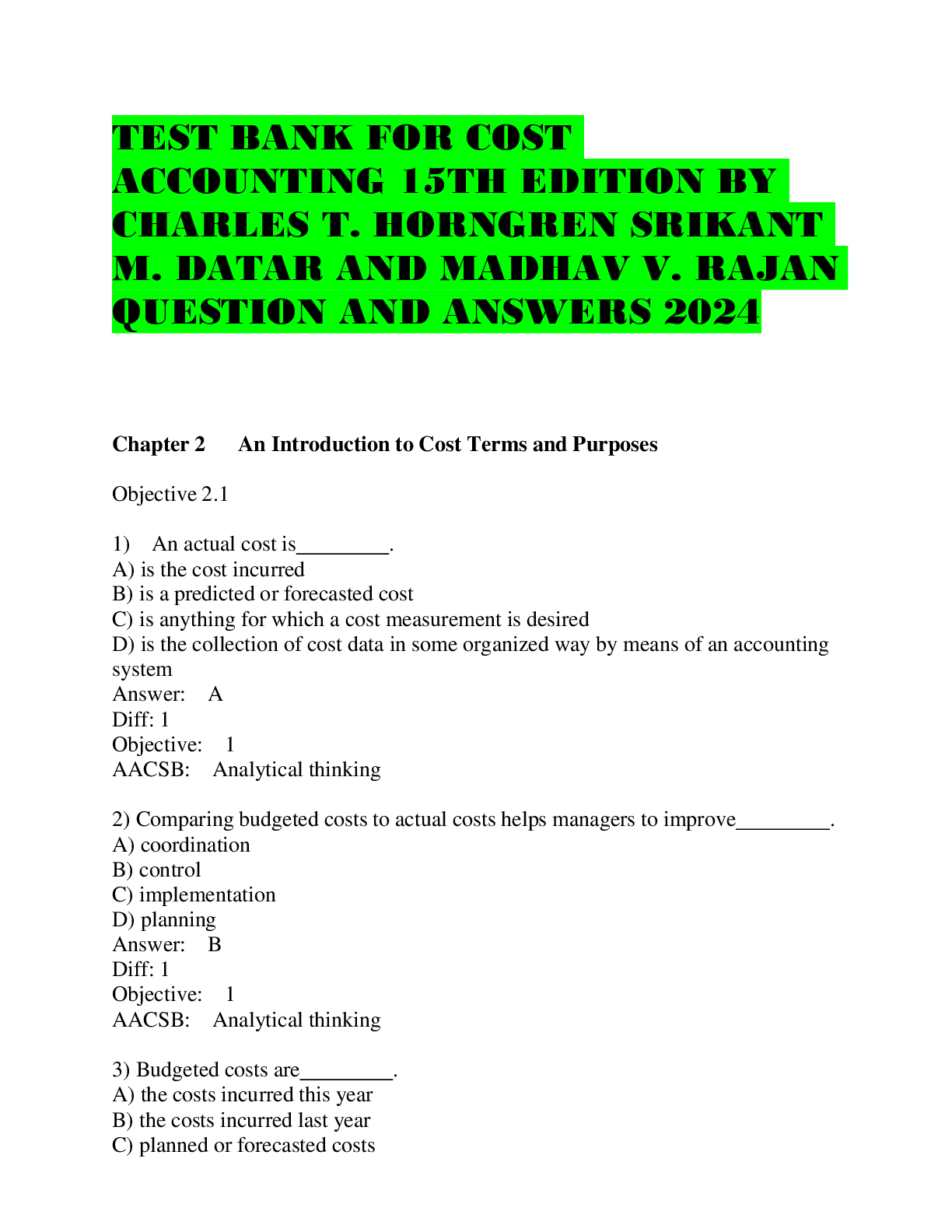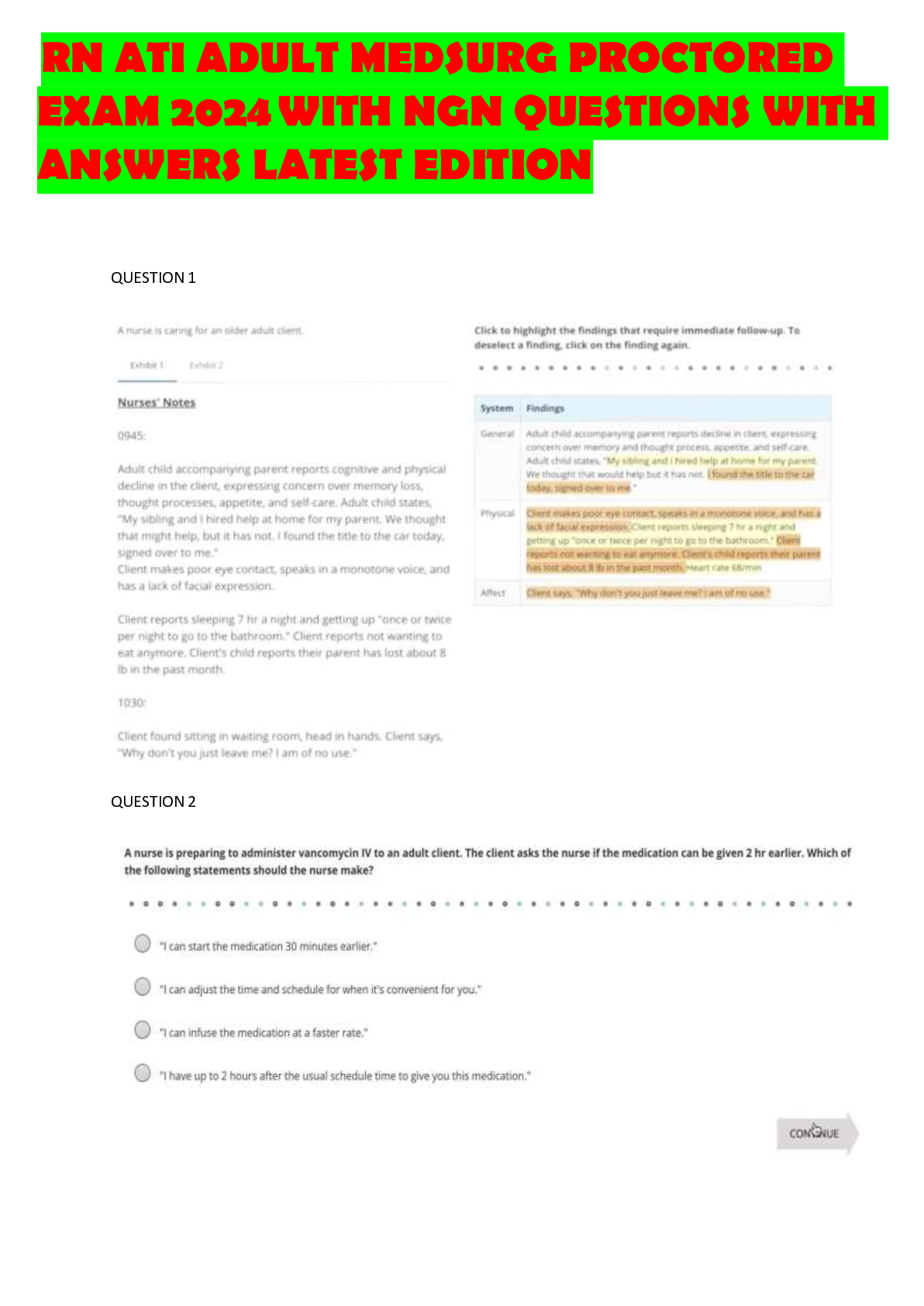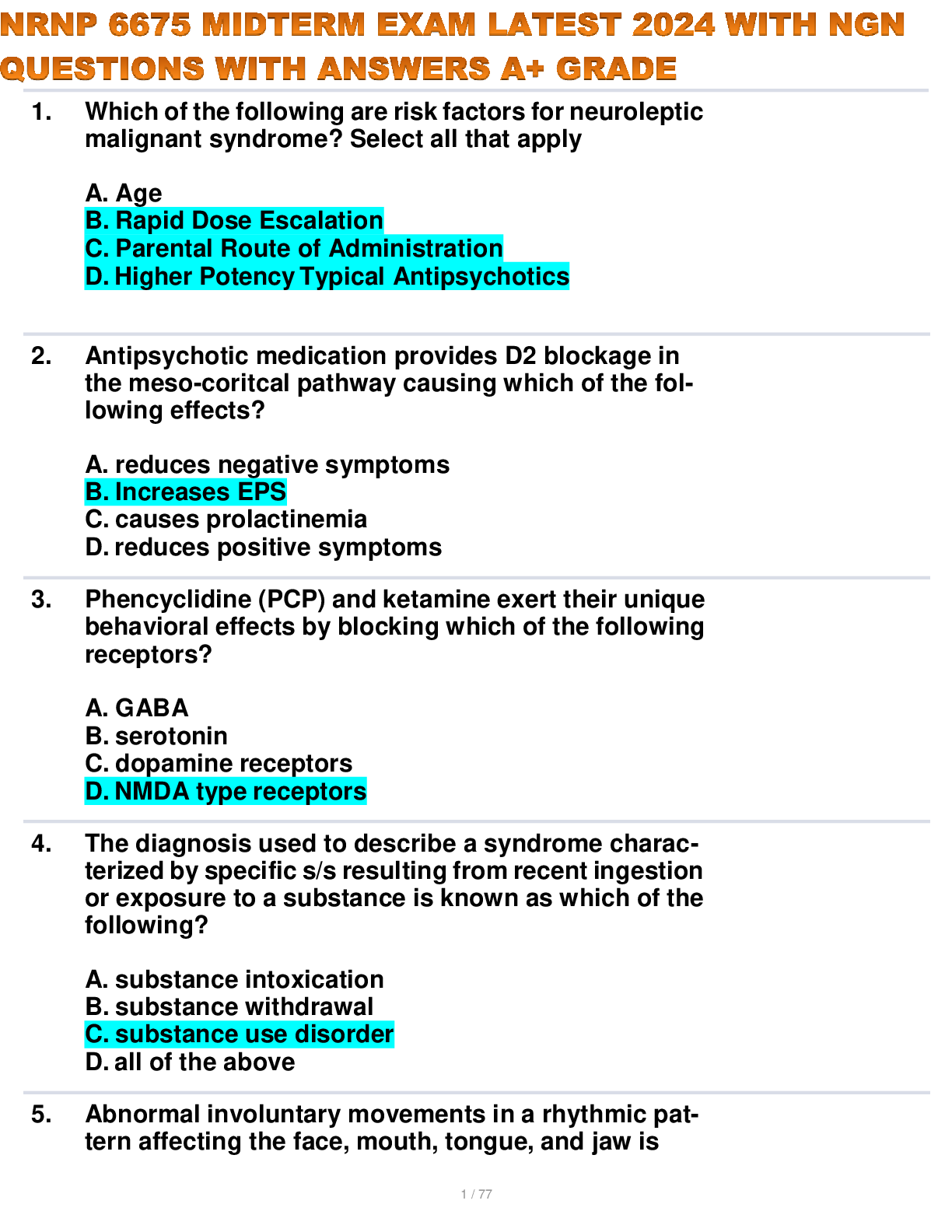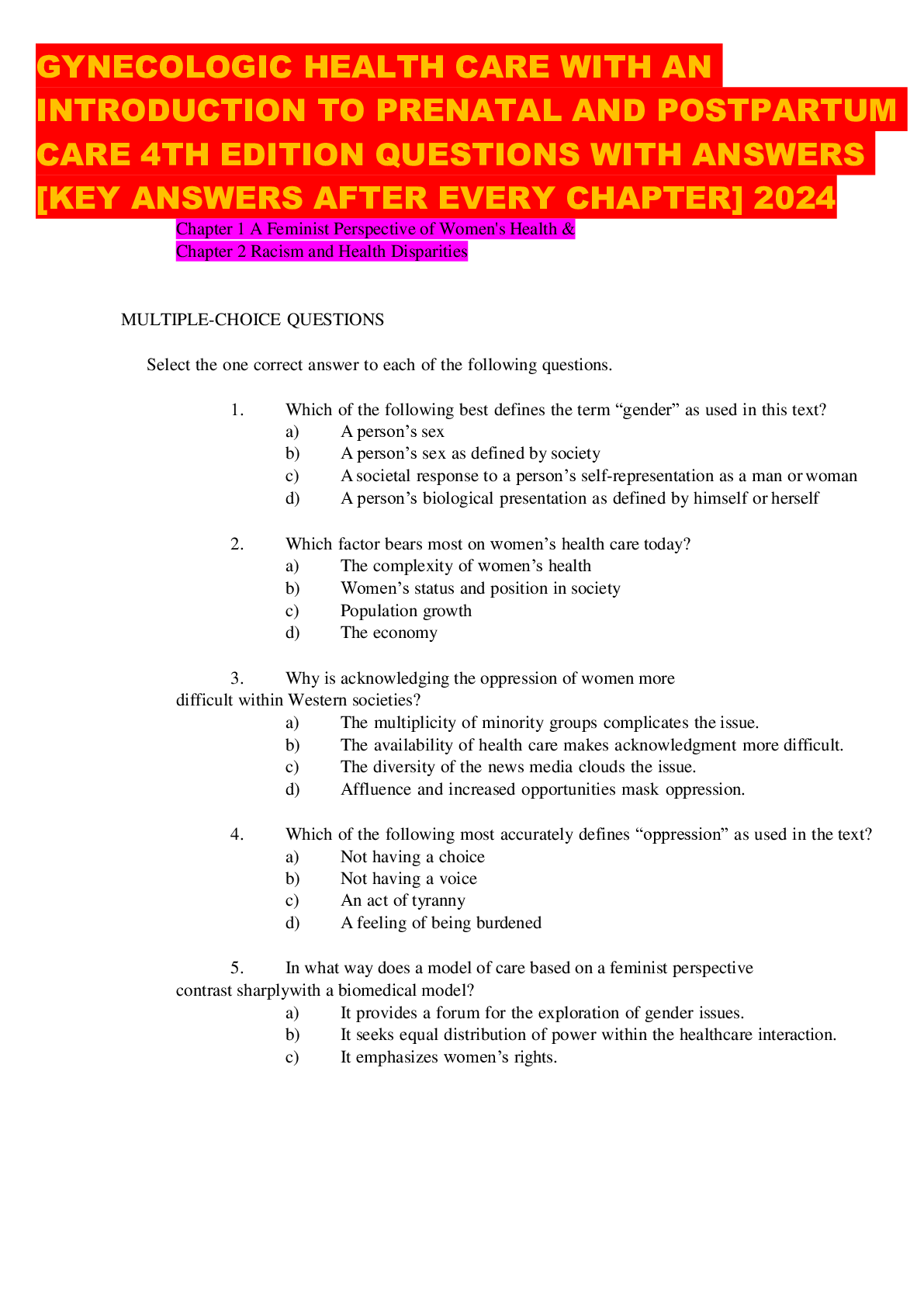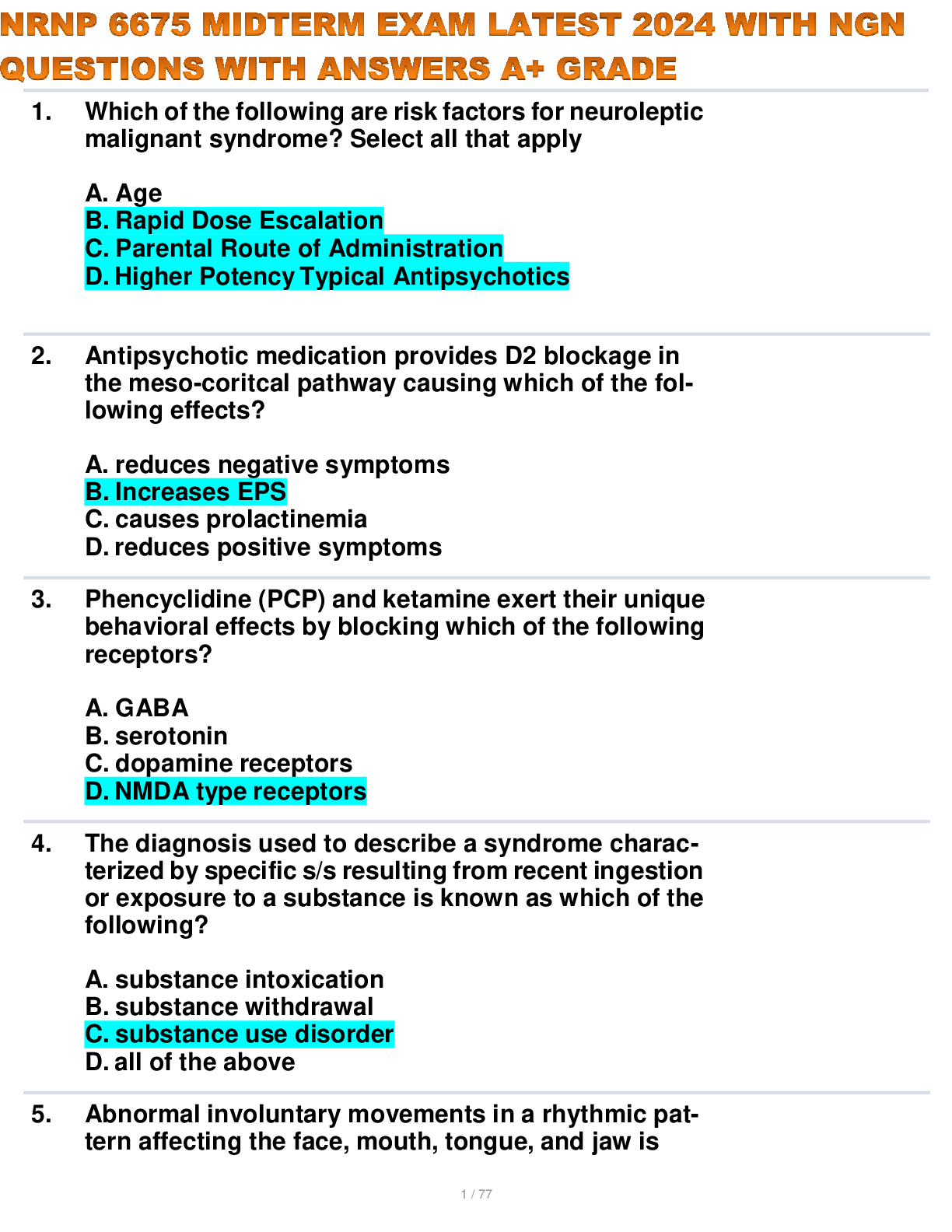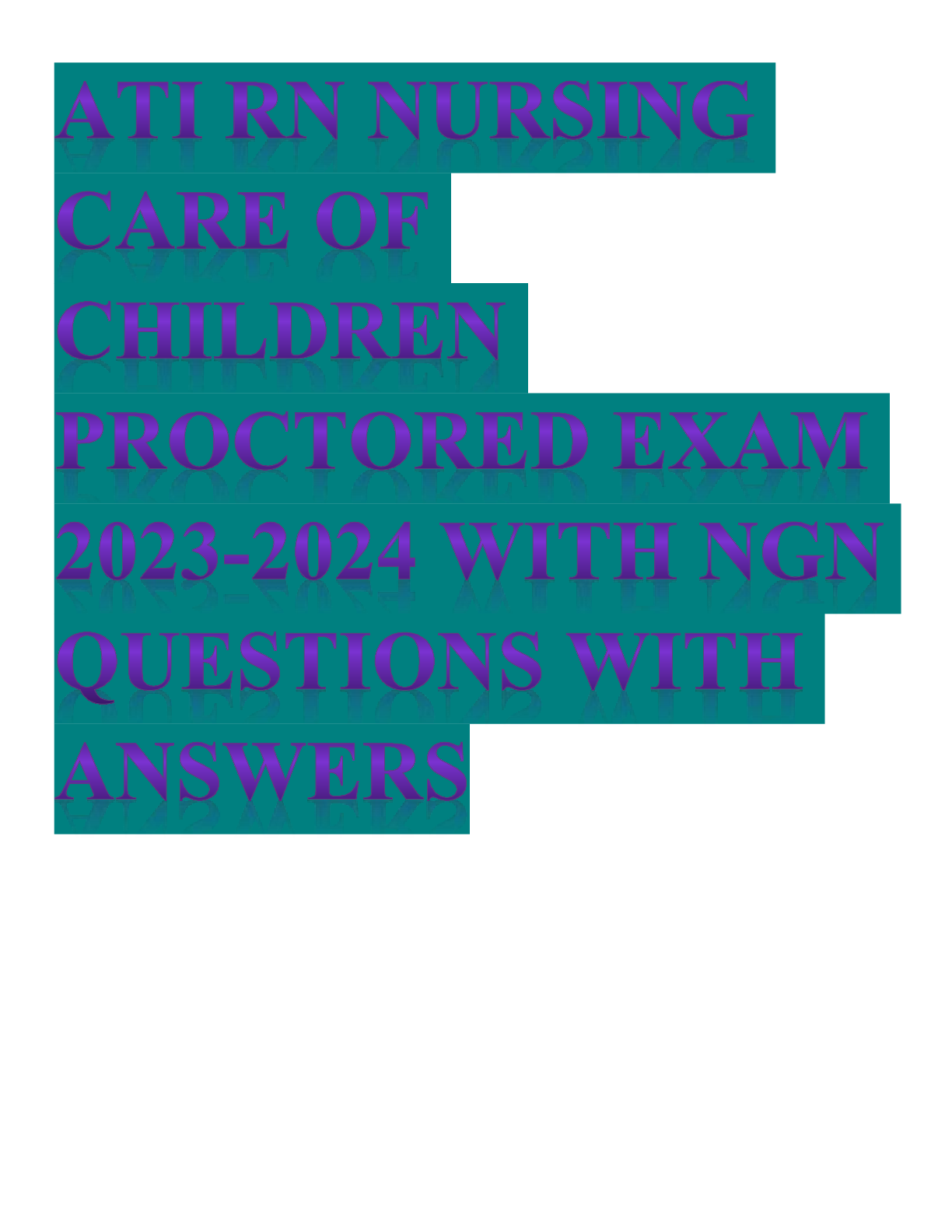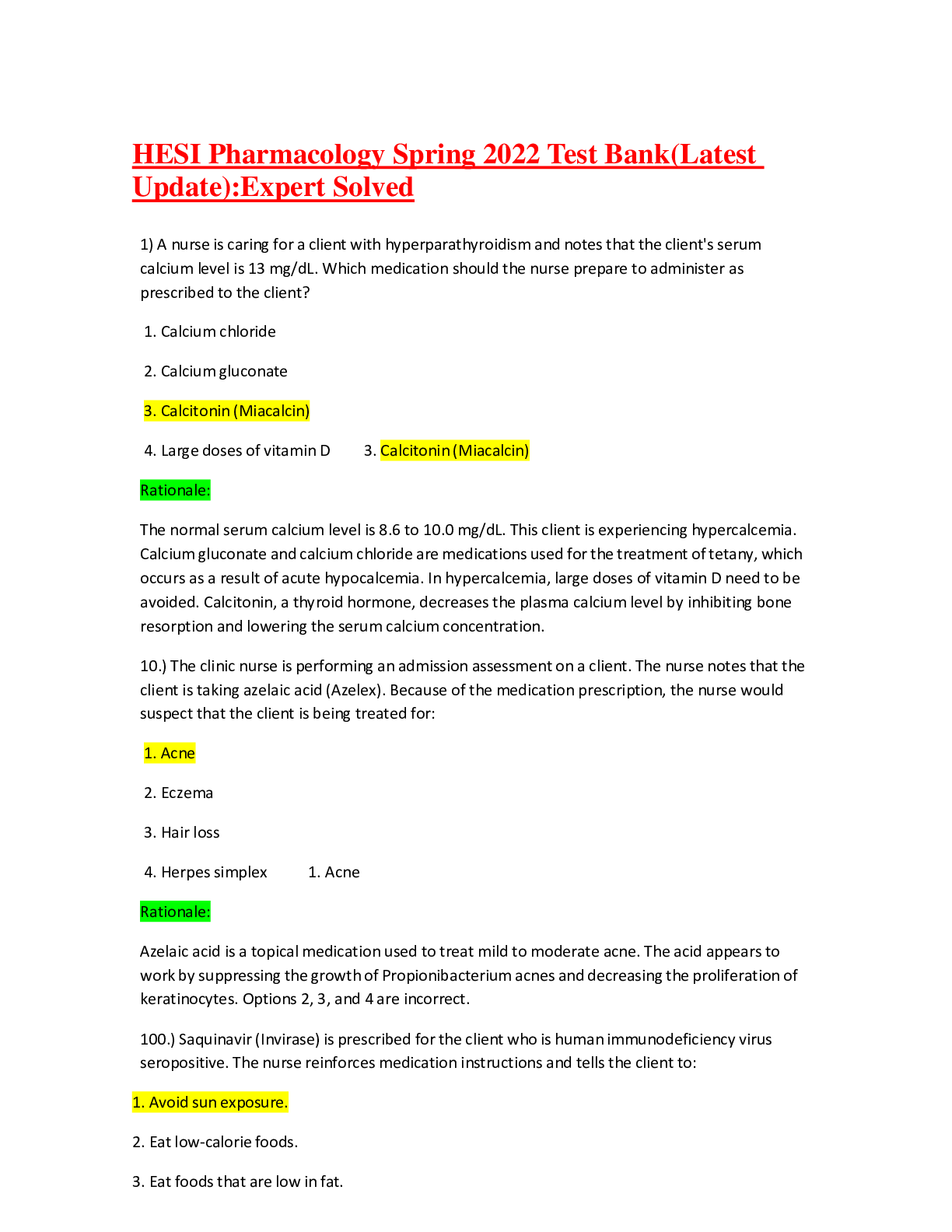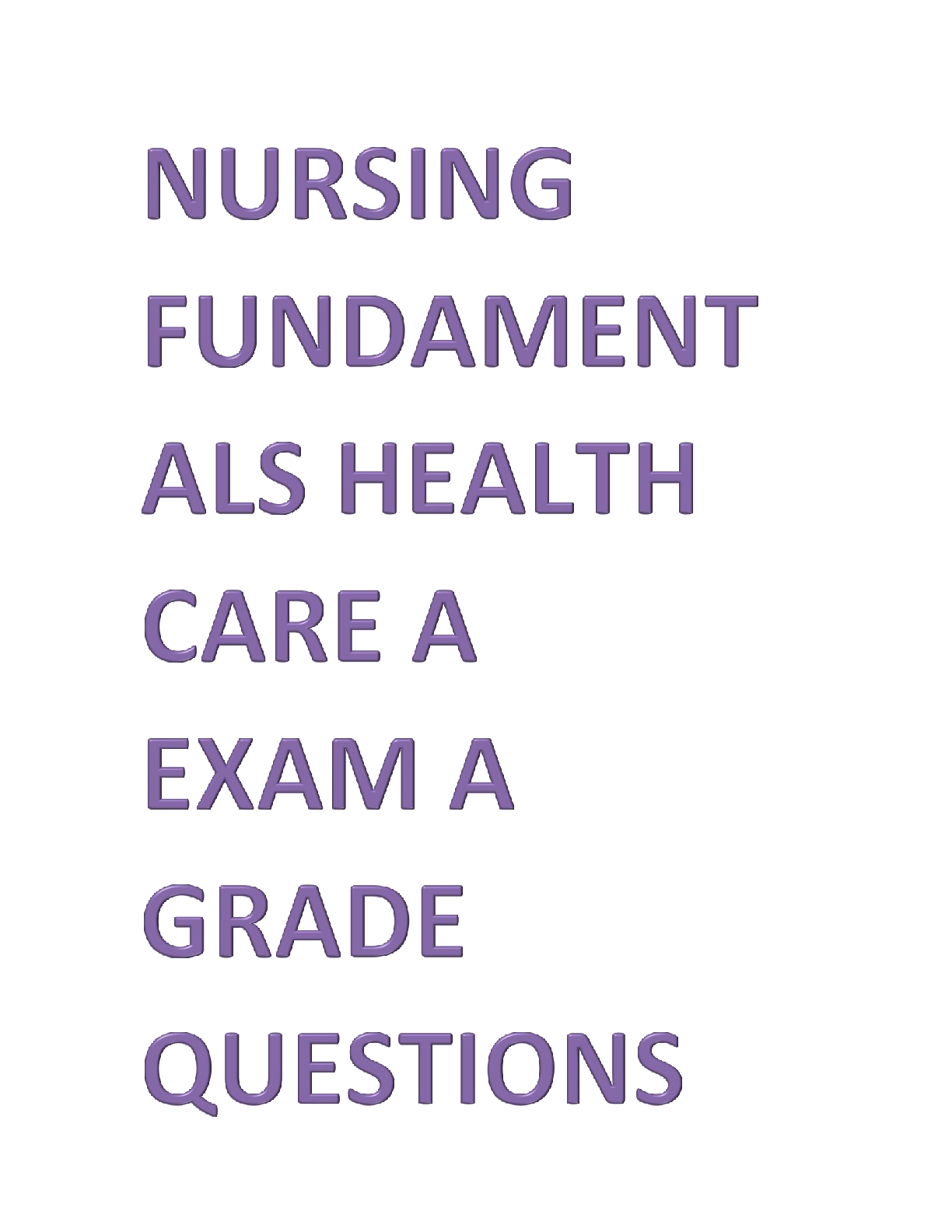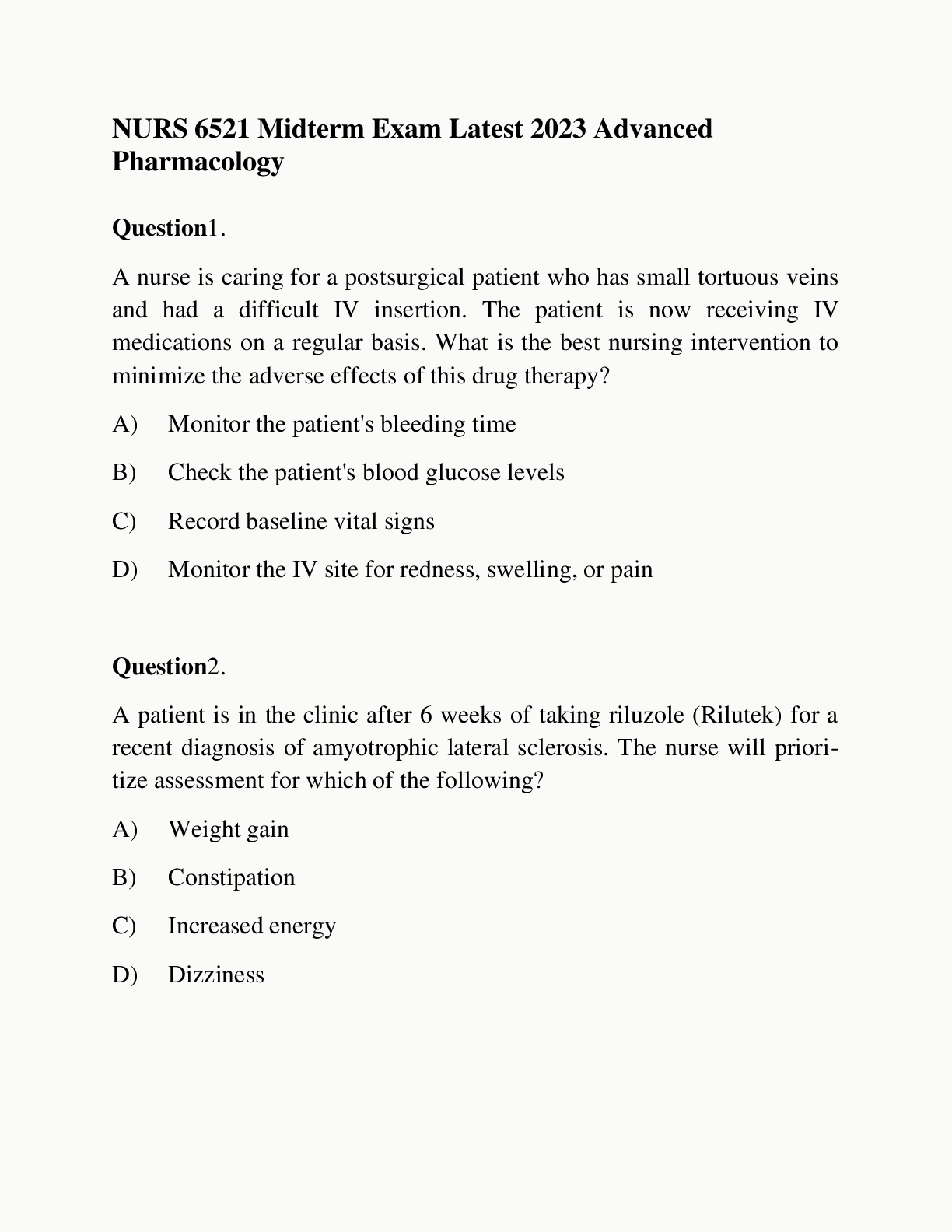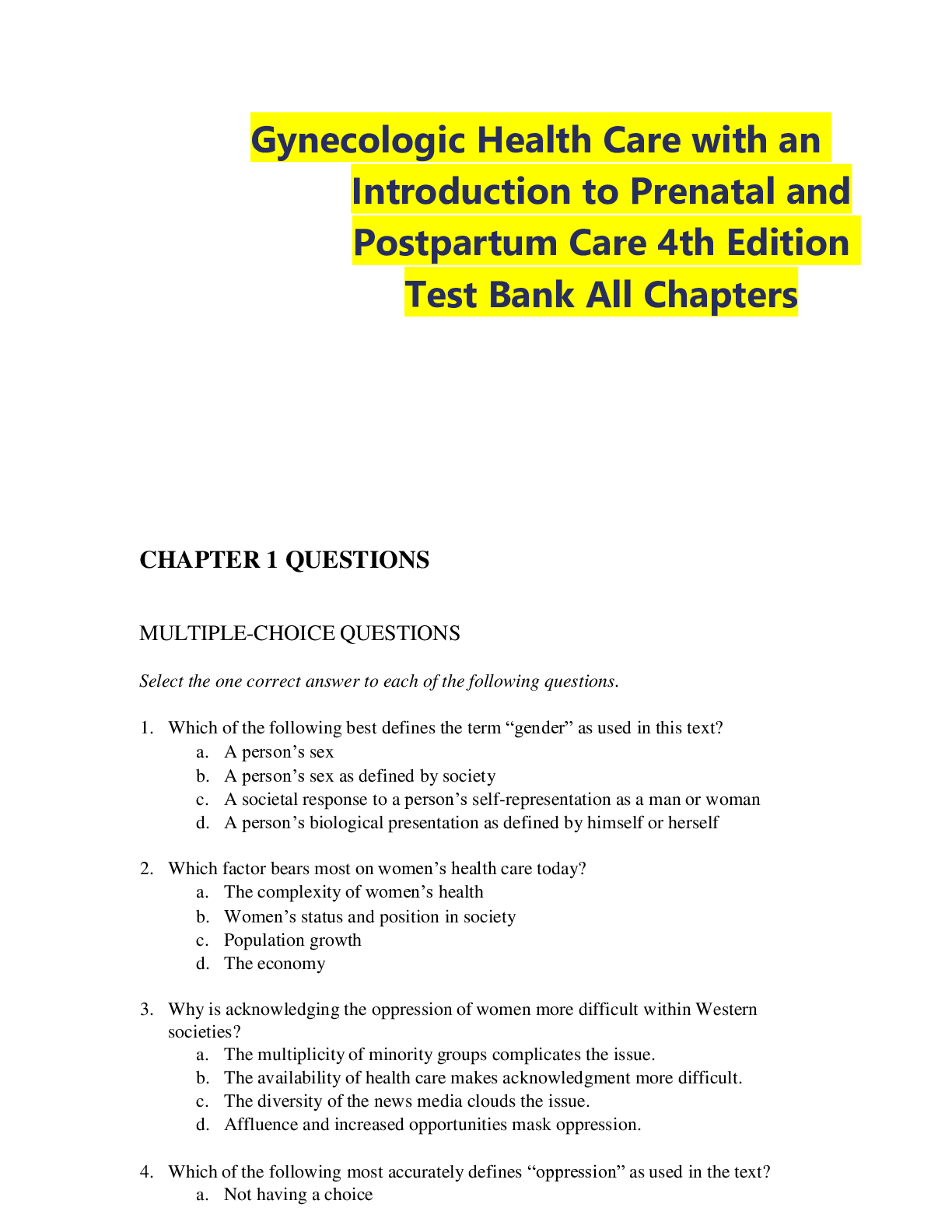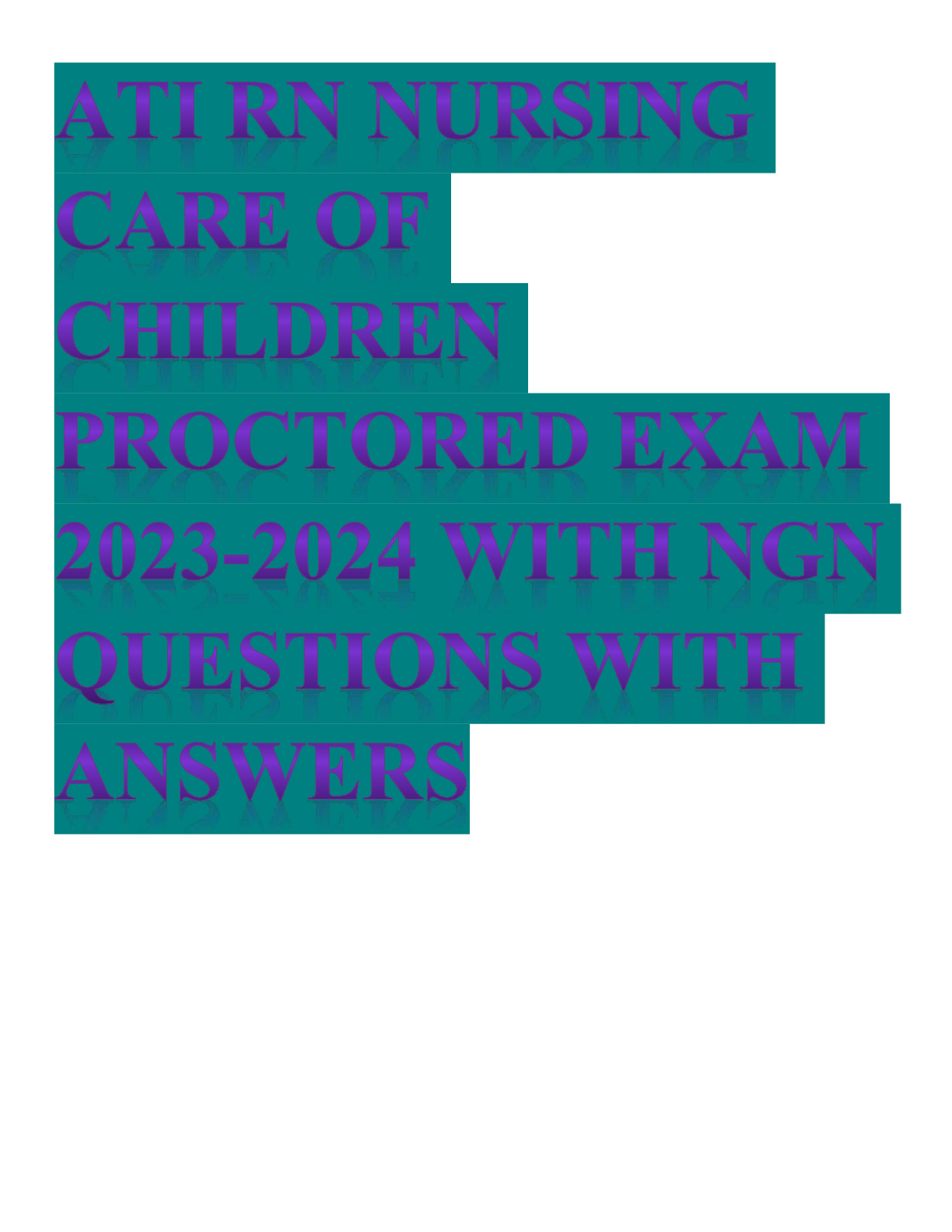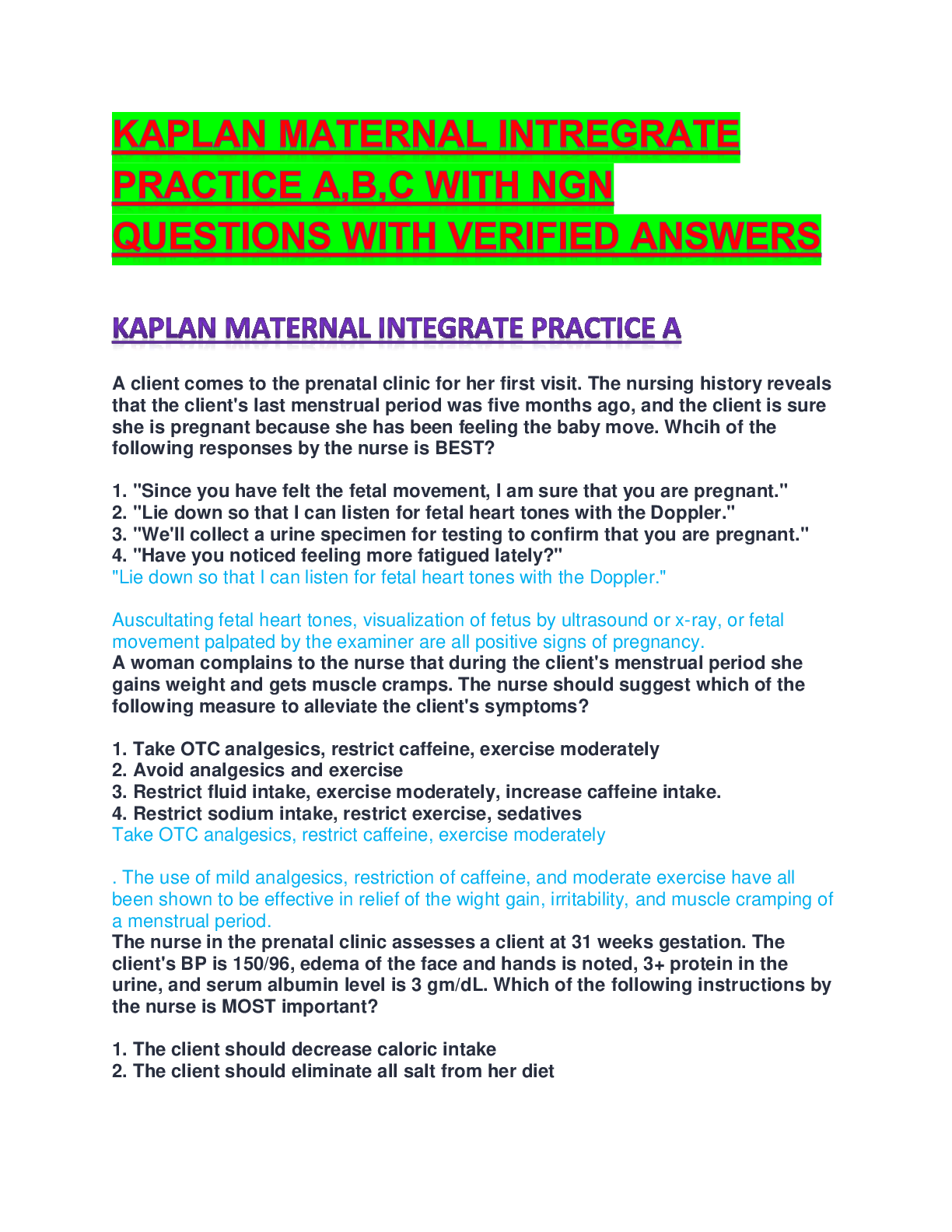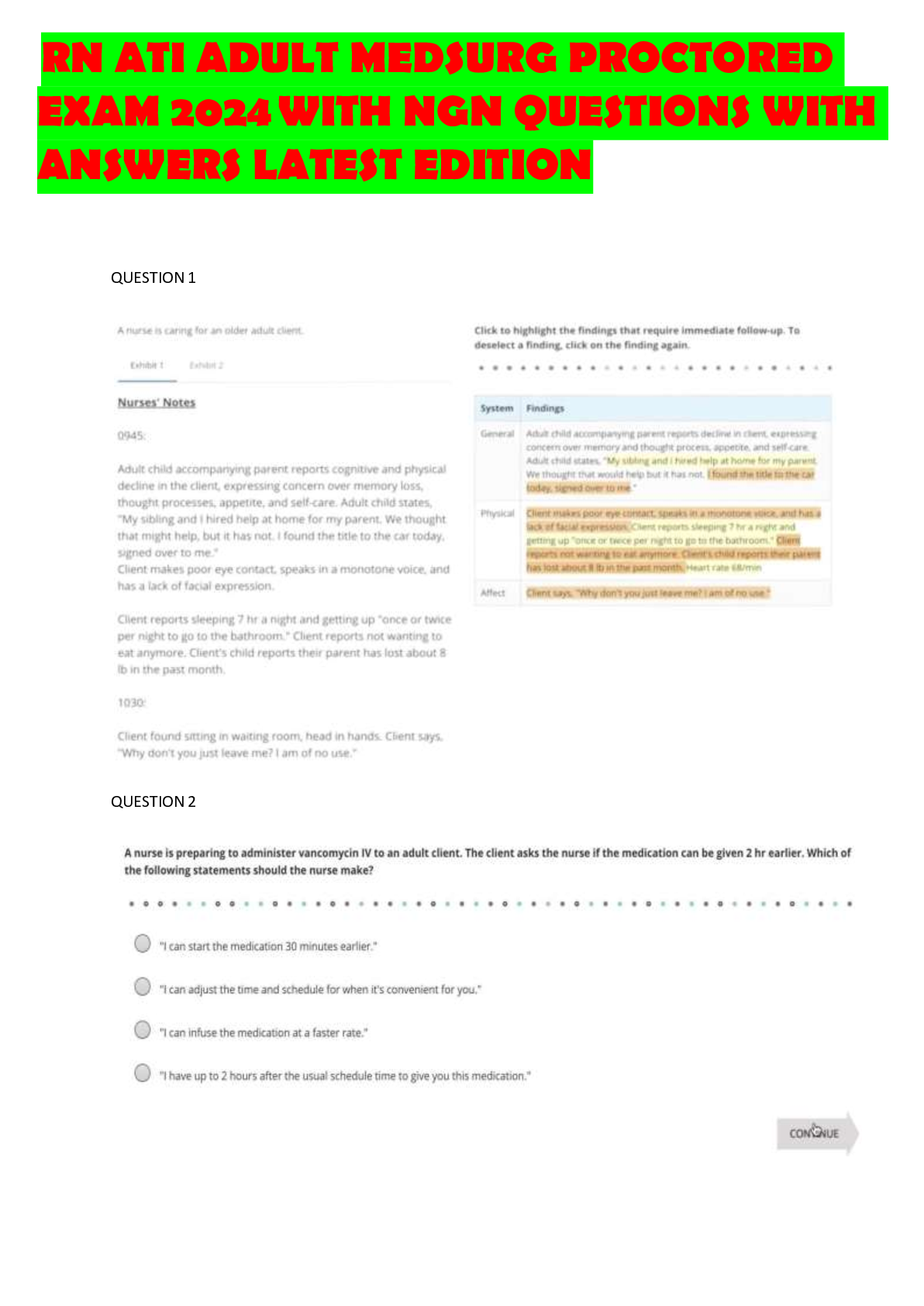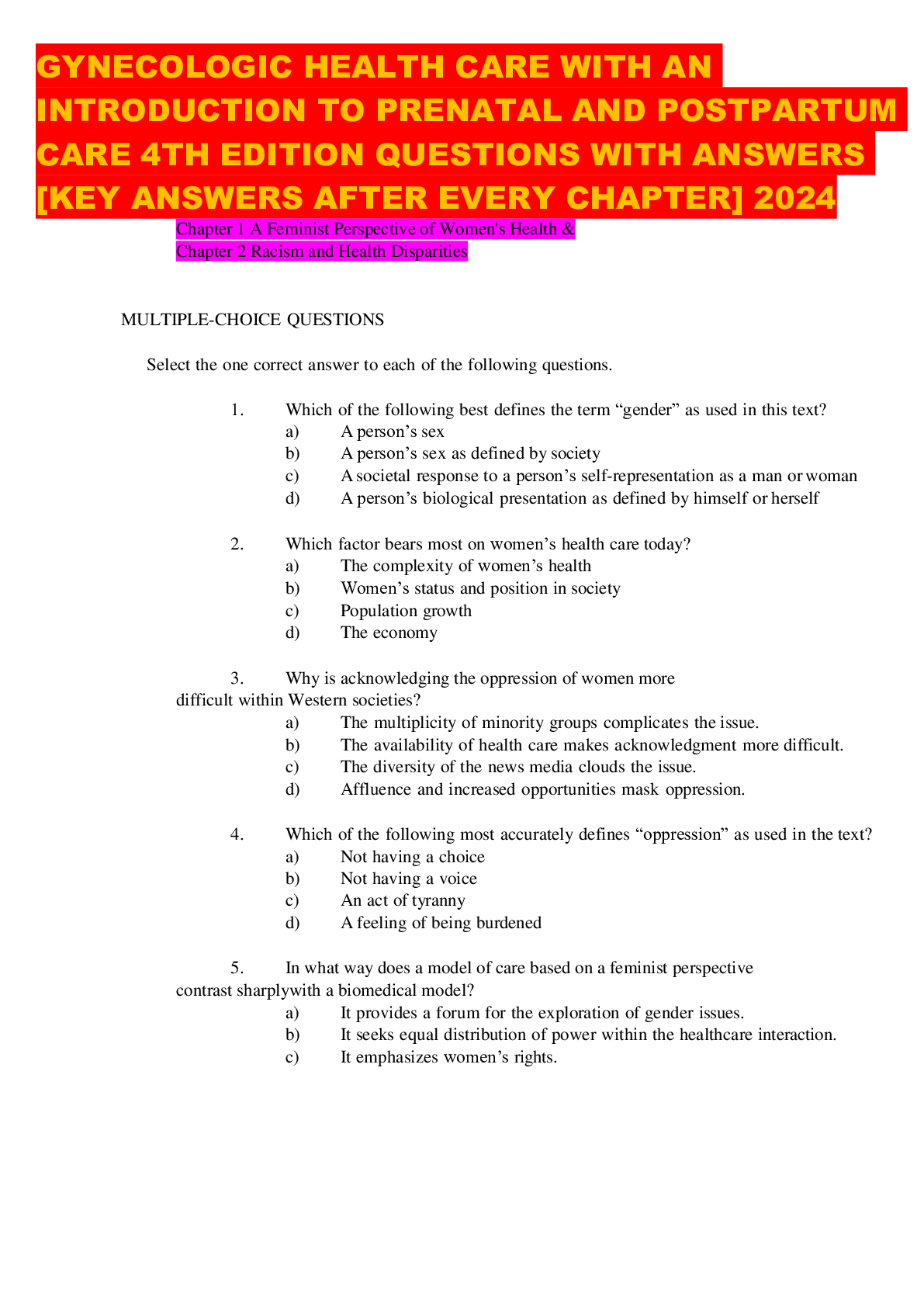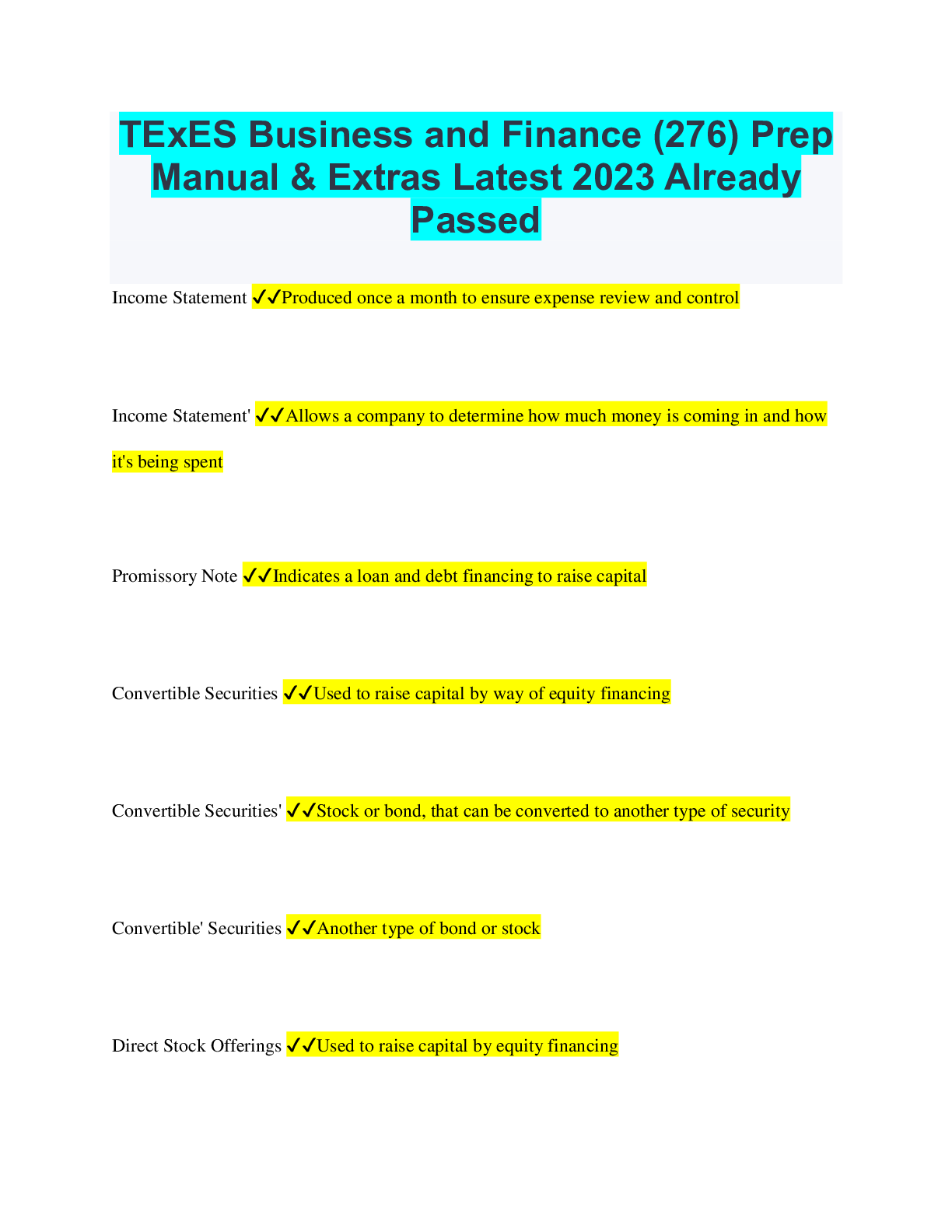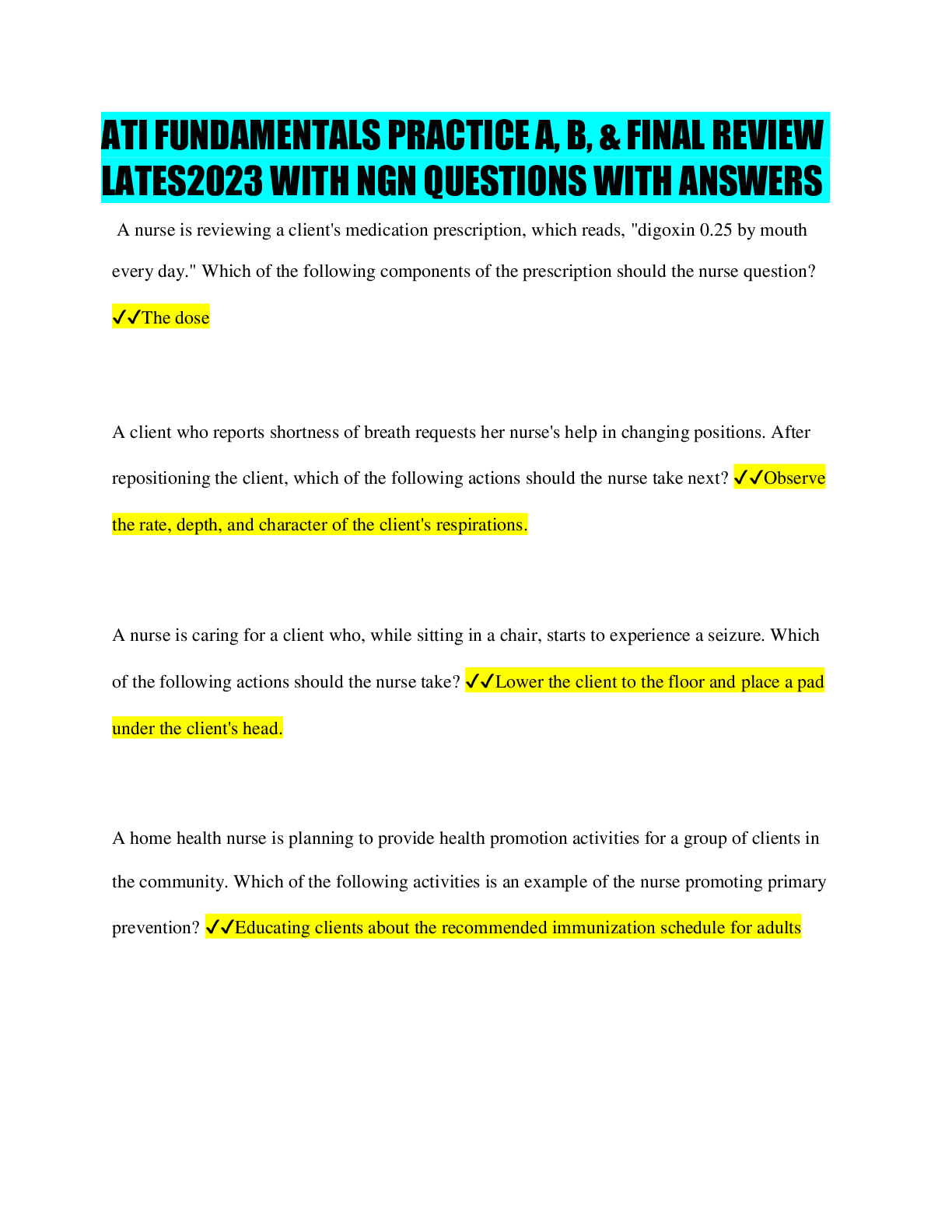Health Care > EXAM > ATI COMMUNITY HEALTH CARE WITH NGN QUESTIONS WITH ANSWERS AND EXPLAINATIONS LATEST 2023 A GRADE (All)
ATI COMMUNITY HEALTH CARE WITH NGN QUESTIONS WITH ANSWERS AND EXPLAINATIONS LATEST 2023 A GRADE
Document Content and Description Below
ATI COMMUNITY HEALTH CARE WITH NGN QUESTIONS WITH ANSWERS AND EXPLAINATIONS LATEST 2023 A GRADE Question 1 See full question A school-age child has a fever, joint inflammation, and a nonpruritic ras... h. Knowing that these are signs of rheumatic fever, the nurse should ask the parents: You Selected: • "Has your child had strep throat recently?" Correct response: • "Has your child had strep throat recently?" Explanation: Asking if the child had strep throat recently is appropriate because group A streptococcal infection typically precedes rheumatic fever — an inflammatory disease that affects the heart, joints, and central nervous system. Rheumatic fever isn't infectious and can't be transmitted from one person to another. Congenital heart defects don't play a role in the development of rheumatic fever. H. influenzae vaccine doesn't prevent streptococcal infection or rheumatic fever. Question 2 See full question A 7-year-old boy is hospitalized with cystic fibrosis. To help him manage secretions and avoid respiratory distress, the nurse should: You Selected: • perform chest physiotherapy every 4 hours. Correct response: • perform chest physiotherapy every 4 hours. Explanation: The nurse should perform chest physiotherapy because it aids in loosening secretions in the entire respiratory tract. Pancreatic enzymes aid in the absorption of necessary nutrients — not in managing secretions. Oxygen therapy doesn't aid in loosening secretions and can cause carbon dioxide retention and respiratory distress in children with cystic fibrosis. A high-calorie diet is appropriate but doesn't facilitate respiratory effort. Question 3 See full question A disabled school-age child whose parents are overprotective may display which characteristics? You Selected: • Dependency, fearfulness, and lack of outside interests Correct response: • Dependency, fearfulness, and lack of outside interests Explanation: Disabled children whose parents are overprotective tend to have marked dependency, fearfulness, inactivity, and lack of outside interests. Children who are raised by oversolicitous and guilt-ridden parents are often overly independent, defiant, and high- risk takers. Children who are reared by parents who emphasize the child's deficits and tend to isolate the child may appear shy and lonely. Children who are reared by parents who establish reasonable limits have pride and confidence in their ability to cope successfully. Question 4 See full question The mother tells the nurse she will be afraid to allow her child with hemophilia to participate in sports because of the danger of injury and bleeding. After explaining that physical fitness is important for children with hemophilia, which activity should the nurse suggest as ideal? You Selected: • swimming Correct response: • swimming Explanation: Swimming is an ideal activity for a child with hemophilia because it is a noncontact sport. Many noncontact sports and physical activities that do not place excessive strain on joints are also appropriate. Such activities strengthen the muscles surrounding joints and help control bleeding in these areas. Noncontact sports also enhance general mental and physical well-being. Falls and subsequent injury to the child may occur with snow skiing. Basketball is a contact sport and therefore increases the child’s risk for injury. Gymnastics is a very strenuous sport. Gymnasts frequently have muscle and joint injuries that result in bleeding episodes. Question 5 See full question An 11-year-old child is sent to the school nurse reporting difficulty reading the blackboard in the classroom. The nurse assesses that the child does not have difficulty reading a laptop screen or reading books. What is the best action by the nurse? You Selected: • Request that the child be screened for myopia. Correct response: • Request that the child be screened for myopia. Explanation: Myopia is nearsightedness. The light rays focus at a point in front of the retina, and the individual is able to see clearly objects directly in front of him or her but is unable to see at a distance. [Show More]
Last updated: 5 months ago
Preview 1 out of 42 pages
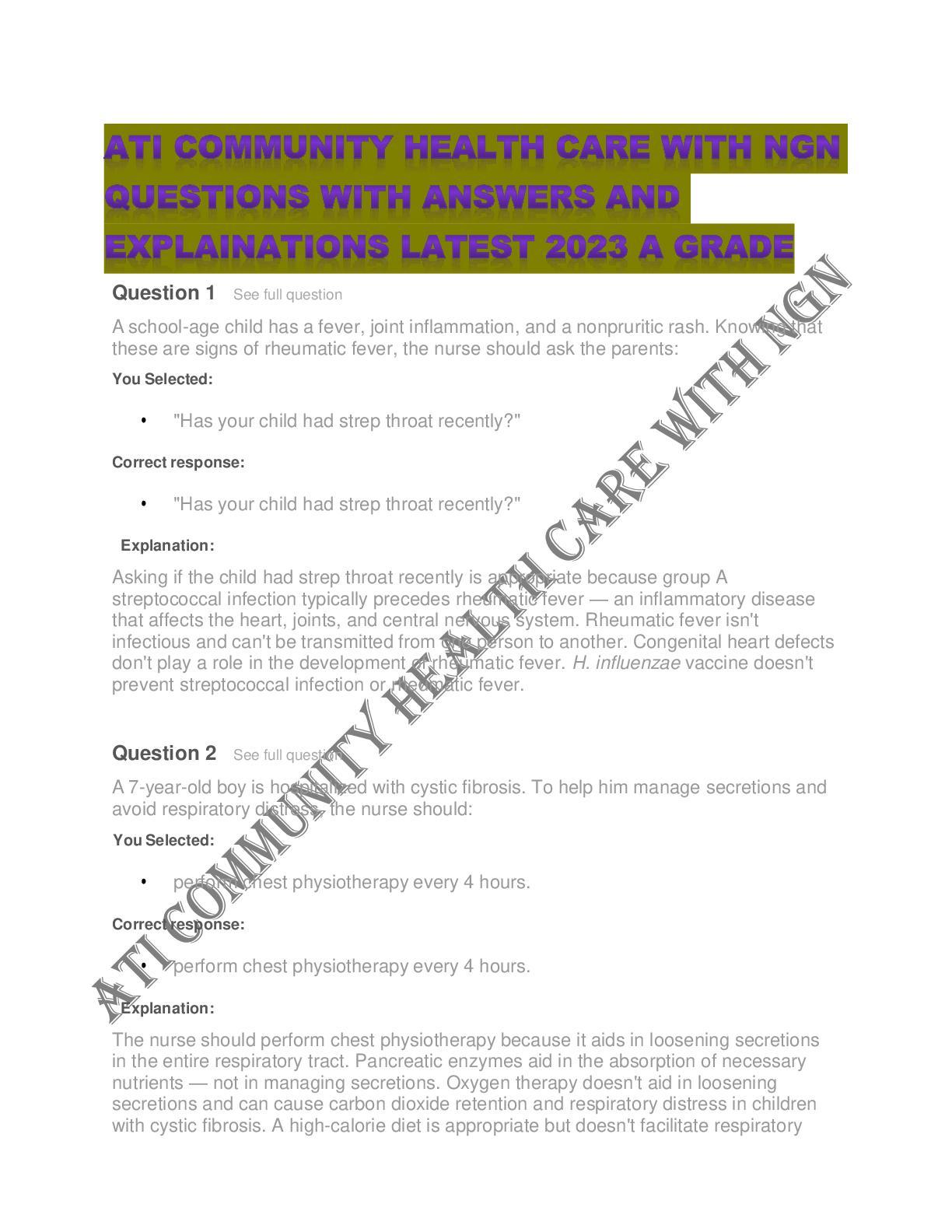
Reviews( 0 )
Document information
Connected school, study & course
About the document
Uploaded On
Nov 19, 2023
Number of pages
42
Written in
Additional information
This document has been written for:
Uploaded
Nov 19, 2023
Downloads
0
Views
65

